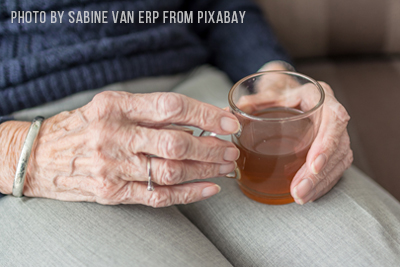
Two of the most common pieces of advice that doctors may tell you when it comes to your diet and health is to “eat more protein” and “drink more water,” but what does that really mean? Registered Dietitian, Heather Schwartz, RD, explains what doctor’s mean by those statements.
Drink more water
How much? It’s recommended to drink at least 9 full glasses of fluid a day if you are 65 and older. Although water is best for you, any fluids like coffee, milk, soup, and tea count toward your daily goal.
What do I do? Try to indulge in one full glass of fluid during eating and in between meals. Doing this will ensure that you’re getting enough fluid throughout the day. Keeping a bottle of water with you will also help make sure that you consume fluids.
Why? Believe it or not, dehydration is common amongst seniors. Certain medications and illnesses can decrease the feeling of thirst, so it’s important that if this happens, to take extra precautions to get the fluids you need. Dehydration can cause
Eat more protein
How much? Every body is different, but a good guideline to follow is that if you are a senior woman, aim for a minimum of 45 grams of protein and 60 grams if you are a male.
What do I do? Try to incorporate a protein such as yogurt, nuts, and milk into your snack and/or meals to make sure you’re getting enough protein. Few examples of foods that contain protein are egg whites (7 grams), string cheese (8 grams) and shrimp (18 grams).
Why? Your body needs protein to maintain its muscles and immune system and including it can reduce the risk of falls and infections. Those who don't get enough protein can cause bruising and fatigue.
The above is just a suggestion, be sure to always speak to your doctor before changing your diet.
Source: https://www.aplaceformom.com/blog/senior-nutrition-recommendations/

